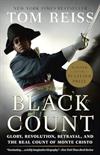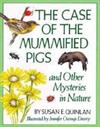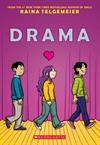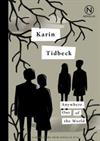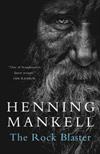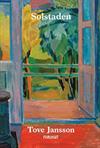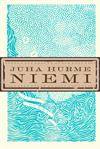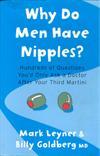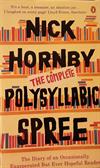
The Language Police: How Pressure Groups Restrict What Students Learn
13 journalers for this copy...
This is a book i heard about on the Jon Stewart show (you just never know what that man will come up with next!) It's about how lobbyists and "pressure groups" censor and restrict what is allowed in US school textbooks, and how this in turn negatively affects students' learning, and interest in learning in general.
Here is an excerpt from the jacket:
"Before Anton Chekhov and Mark Twain can be used in school readers and exams, they must be vetted by a bias and sensitivity committee. An anthology used in Tennessee schools changed 'By God!' to 'By gum!' and 'My God' to 'You don't mean it.' The New York State Education department omitted mentioning Jews in an Isaac Bashevis Singer story about prewar Poland, or blacks in Annie Dillard's memoir of growing up in a racially mixed town. California rejected a reading book because The Little Engine That Could was male...
"School boards and bias and sensitivity committees review, abridge, and modify texts to delete potentially offensive words, topics and imagery. Publishers practice self-censorship to sell books in big states.
"To what exactly do the censors object? A typical publisher's guideline advises that:
* Women cannot be depicted as caregivers or doing household chores.
* Men cannot be lawyers or doctors or plumbers. They must be nurturing helpmates.
* Old people cannot be feeble or dependant; they must jog or repair the roof.
* A story that is set in the mountains discriminates against students from flatlands.
* Children cannot be seen as disobedient or in conflict with adults.
*Cake cannot appear in a story (even a story about a birthday party) because it is not nutritious."
This example is from the body of the text: The Blind Mountain Climber (a true story about a young blind man who hiked to the top of Mount McKinley). This was rejected because 1) "the story contained "regional bias" b/c it was about hiking and mountain climbing, which favors students who live in regions where those activities are common." 2) it "suggested that people who are blind are somehow at a disadvantage compared to people who have normal sight, that they are 'worse off' and have a more difficult time facing dangers than those who are not blind."
I was fascinated and bothered by this book and i think anyone interested in education, or who has school aged children should read it, as it does also offer suggestions on ways to start rectifying this problem.
Here is an excerpt from the jacket:
"Before Anton Chekhov and Mark Twain can be used in school readers and exams, they must be vetted by a bias and sensitivity committee. An anthology used in Tennessee schools changed 'By God!' to 'By gum!' and 'My God' to 'You don't mean it.' The New York State Education department omitted mentioning Jews in an Isaac Bashevis Singer story about prewar Poland, or blacks in Annie Dillard's memoir of growing up in a racially mixed town. California rejected a reading book because The Little Engine That Could was male...
"School boards and bias and sensitivity committees review, abridge, and modify texts to delete potentially offensive words, topics and imagery. Publishers practice self-censorship to sell books in big states.
"To what exactly do the censors object? A typical publisher's guideline advises that:
* Women cannot be depicted as caregivers or doing household chores.
* Men cannot be lawyers or doctors or plumbers. They must be nurturing helpmates.
* Old people cannot be feeble or dependant; they must jog or repair the roof.
* A story that is set in the mountains discriminates against students from flatlands.
* Children cannot be seen as disobedient or in conflict with adults.
*Cake cannot appear in a story (even a story about a birthday party) because it is not nutritious."
This example is from the body of the text: The Blind Mountain Climber (a true story about a young blind man who hiked to the top of Mount McKinley). This was rejected because 1) "the story contained "regional bias" b/c it was about hiking and mountain climbing, which favors students who live in regions where those activities are common." 2) it "suggested that people who are blind are somehow at a disadvantage compared to people who have normal sight, that they are 'worse off' and have a more difficult time facing dangers than those who are not blind."
I was fascinated and bothered by this book and i think anyone interested in education, or who has school aged children should read it, as it does also offer suggestions on ways to start rectifying this problem.
Well, i sent the book off to start the bookray journy yesterday. It went out to yvi-1 down in FL, and there are LOTS of other people signed up after her. I just hope that it does get to everyone, and that everyone enjoys it, or at least is as intrigued by it as I was.
This is the updated list for the bookray, as i have gotten additional interest since the book went in the mail. i intended this as a perpetual or almost perpetual bookray, so as long as people keep wanting to read it, i'll keep adding names. Some people dropped out, so the list is a little shorter.
~~~~~~~~~~~~~~updated 11/22/04~~~~~~~~~~~~~~
1] yvi-1 **read and sent on
2] gnissorckoob ** read and sent on
3] Maurean ** read and sent on
4] fly46 ** read and sent on
5] sarajenni ** read and sent on
6] tamugrad02 ** read and sent on
7] Red644 ** read and sent on
8] skcreader ** read and sent on
9] phantomreader42 *has it now
10] Eskielover
11] Tamster33
12] spark
13] Wandeca
14] jmg49
15] MissQ
16] junegirl
19] grover3d
20] loopy1
21] kernow8
22] Chrisp93
23] IrasCignavojo
24] Chirel
25] ecritures
26] yvonnep
27] bkwrm23
28] caligula03
29] Jas330
30] Lyssian
31] TracyShannon
32] Tuz
33] mbmeadow
i do hope it makes it around to everyone!!
The thing that struck me the most about the book was how extreme many of the objections to the passages were. It really seemed to me to be twisting logic to object to a story about a blind person b/c it implied that being blind sometimes creates difficulties. Also twisting logic to think that if a story mentions divorce, or abortion, or any kind of disagreement that this will make kids run right out and have sex, get abortions and make people get divorced.
And the whole foundation of the argument that what kids read in their textbooks some how will influence them much more than their home environments; what their parents teach them, or even wha they see everyday in the media. To blame all social ills on textbooks, or to think that the way to solve them is by censoring them, makes no sense to me.
And i am just flabbergasted at the lengths to which writers and publishers have to go to, to appease the extremist conservatives in Texas AND the extremist political correctness idiots in California. I can't even imagine how boring that book has to be.
The other thing that bothers me is the lack of acknowledgement of the changes in the books. There are no footnotes, no ellipses when parts are left out, no consulting with the authors to make sure the changes don't ruin the piece.
That's what i think, and i can't wait to hear from everyone else.
This is the updated list for the bookray, as i have gotten additional interest since the book went in the mail. i intended this as a perpetual or almost perpetual bookray, so as long as people keep wanting to read it, i'll keep adding names. Some people dropped out, so the list is a little shorter.
~~~~~~~~~~~~~~updated 11/22/04~~~~~~~~~~~~~~
1] yvi-1 **read and sent on
2] gnissorckoob ** read and sent on
3] Maurean ** read and sent on
4] fly46 ** read and sent on
5] sarajenni ** read and sent on
6] tamugrad02 ** read and sent on
7] Red644 ** read and sent on
8] skcreader ** read and sent on
9] phantomreader42 *has it now
10] Eskielover
11] Tamster33
12] spark
13] Wandeca
14] jmg49
15] MissQ
16] junegirl
19] grover3d
20] loopy1
21] kernow8
22] Chrisp93
23] IrasCignavojo
24] Chirel
25] ecritures
26] yvonnep
27] bkwrm23
28] caligula03
29] Jas330
30] Lyssian
31] TracyShannon
32] Tuz
33] mbmeadow
i do hope it makes it around to everyone!!
The thing that struck me the most about the book was how extreme many of the objections to the passages were. It really seemed to me to be twisting logic to object to a story about a blind person b/c it implied that being blind sometimes creates difficulties. Also twisting logic to think that if a story mentions divorce, or abortion, or any kind of disagreement that this will make kids run right out and have sex, get abortions and make people get divorced.
And the whole foundation of the argument that what kids read in their textbooks some how will influence them much more than their home environments; what their parents teach them, or even wha they see everyday in the media. To blame all social ills on textbooks, or to think that the way to solve them is by censoring them, makes no sense to me.
And i am just flabbergasted at the lengths to which writers and publishers have to go to, to appease the extremist conservatives in Texas AND the extremist political correctness idiots in California. I can't even imagine how boring that book has to be.
The other thing that bothers me is the lack of acknowledgement of the changes in the books. There are no footnotes, no ellipses when parts are left out, no consulting with the authors to make sure the changes don't ruin the piece.
That's what i think, and i can't wait to hear from everyone else.
Just received it! Thank you! I think this is the perfect read for me right now (school starting up). It may take me a little while to finish but I'll pass it along as soon as I'm done.
I did not finish reading the book (though I skimmed all of it) ... it was a little "too real" for me. However, I did find it quite interesting how we are to an extent dumbing down everything. Perhaps instead of not allowing certain words or topics in textbooks and tests, we should allow and then have a healthy dose of discussion. The teacher's book would have why certain things might be offensive to some people. This would educate the students further instead of thinking that we live in a world where no one offends anyone. Geez!
It is going to Gnissorckoob next. Am waiting on his/her address to send out.
It is going to Gnissorckoob next. Am waiting on his/her address to send out.
Uh-oh. I've read the first 60 pages and I strongly disagree with the author on much of what I've read so far. Up to this point, she has not been discussing textbooks (what I thought the book was going to be about) but railing about passages rejected for use in standardized testing.
Ravitch, who says she is primarily a historian, blurs the distinction between censorship and well-researched, psychometrically sound mainstream test-design standards.
Let's take her example of the Blind Mountain Climber (mentioned above) and the problem or regionalization. The passage was thrown out of an achievement test assessing reading comprehension . This was a good decision because a reading test must measure the ability to read and not extraneous factors. For the test to be a valid and useful measure of a construct, across groups of students, it must have a "level playing field" and should be as pure a measure of reading ability as possible.
Here in sea-level Miami, for example, kids do not routinely grow up knowing such terms as summit, trail, hike, peak, etc. So in this community, the passage about climbing would have given an unfair advantage to kids who are well-traveled and maybe go to Colorado on ski vacations (commonly done by affluent Miamians), artificially inflating their reading scores.
Regarding ethnic sensitivity, Ravitch got all upset over a passage about Mt. Rushmore being deleted from a test because for some native people of the Black Hills the big heads are considered an abomination in a sacred place to pray. She thought that was taking ethnic sensitivity too far. What she does not seem to understand that, under testing conditions, reading such an article could create internal conflict for some Native Amercian examinees (i.e., Am I being disloyal to my people by treating this as a partiotic symbol?), distracting them from being able to demonstrate their reading skills on the assessment.
The same "distraction" factor can impact kids when tests use topics such as death, disease, religion, unemployment, divorce, traumatic events, etc. Items that contain emotional distractions or that create conflict in some individuals should be eliminated from academic tests.
Whatever you may think of standardized tests, Ravitch's ideas would only make them worse.
Well, I could go on about how wrong-headed this author is. I will continue reading and see what else she has to say.
Ravitch, who says she is primarily a historian, blurs the distinction between censorship and well-researched, psychometrically sound mainstream test-design standards.
Let's take her example of the Blind Mountain Climber (mentioned above) and the problem or regionalization. The passage was thrown out of an achievement test assessing reading comprehension . This was a good decision because a reading test must measure the ability to read and not extraneous factors. For the test to be a valid and useful measure of a construct, across groups of students, it must have a "level playing field" and should be as pure a measure of reading ability as possible.
Here in sea-level Miami, for example, kids do not routinely grow up knowing such terms as summit, trail, hike, peak, etc. So in this community, the passage about climbing would have given an unfair advantage to kids who are well-traveled and maybe go to Colorado on ski vacations (commonly done by affluent Miamians), artificially inflating their reading scores.
Regarding ethnic sensitivity, Ravitch got all upset over a passage about Mt. Rushmore being deleted from a test because for some native people of the Black Hills the big heads are considered an abomination in a sacred place to pray. She thought that was taking ethnic sensitivity too far. What she does not seem to understand that, under testing conditions, reading such an article could create internal conflict for some Native Amercian examinees (i.e., Am I being disloyal to my people by treating this as a partiotic symbol?), distracting them from being able to demonstrate their reading skills on the assessment.
The same "distraction" factor can impact kids when tests use topics such as death, disease, religion, unemployment, divorce, traumatic events, etc. Items that contain emotional distractions or that create conflict in some individuals should be eliminated from academic tests.
Whatever you may think of standardized tests, Ravitch's ideas would only make them worse.
Well, I could go on about how wrong-headed this author is. I will continue reading and see what else she has to say.
OK, finished it.
As the author lost her credibility with me in the first 2 chapters, I'm not sure how to take the rest of the book. The rest is about textbooks, at least.
Ravitch seemed to want to equate right-wing pressure to eliminate topics such as non-two-parent families and references to the occult with left-wing insistence on diversity and inclusiveness. I don't think these two "sides" are at all equivalent in deserving to be labelled as censorship. So I disagree with the author's atempt to balance the two sides.
In spite of these criticisms, I found the book pretty interesting. For example, the discussion of bowdlerization (page 113) and the creation of "faux literature." I didn't know about this, although I suspected it; and I have fauxed up some literature myself for teaching purposes, to be honest.
Ravitch gives the inside stories on the bureaucracy of textbook adoption. I learned why my daughter's high school books weigh a ton.
Now the book is on to Maurean in Atlantic Beach. (Mailed 9/24)
As the author lost her credibility with me in the first 2 chapters, I'm not sure how to take the rest of the book. The rest is about textbooks, at least.
Ravitch seemed to want to equate right-wing pressure to eliminate topics such as non-two-parent families and references to the occult with left-wing insistence on diversity and inclusiveness. I don't think these two "sides" are at all equivalent in deserving to be labelled as censorship. So I disagree with the author's atempt to balance the two sides.
In spite of these criticisms, I found the book pretty interesting. For example, the discussion of bowdlerization (page 113) and the creation of "faux literature." I didn't know about this, although I suspected it; and I have fauxed up some literature myself for teaching purposes, to be honest.
Ravitch gives the inside stories on the bureaucracy of textbook adoption. I learned why my daughter's high school books weigh a ton.
Now the book is on to Maurean in Atlantic Beach. (Mailed 9/24)
Fair Warning: this is a serious book by an academic woman who really believes what she is writing about is a problem in American schools. It's not a light read, and she gets repetitive in places. I think its thought provoking, and certainly worthy of debate. I do think you have to read it closely, and she takes some time to set up her arguments.
I've been very intrigued by what i've read so far, and am interested to see what others of you have to say.
I just received this in today's mail. This is a topic of great interest to me, and I look forward to reading Ravitch's views on the subject. I will journal again, once I've had an opportunity to read some.
Thanks to elizz273 for offering this book as a ray!
Thanks to elizz273 for offering this book as a ray!
"I sit with Shakespeare, and he winces not. Across the color line I move arm and arm with Balsac and Dumas, where smiling men and welcoming women glide in gilded halls. From out of the caves of evening that swing between the strong-limbed earth and the tracery of the stars, I summon Aristotle and Aurelius and what soul I will, and they come all graciously with no scorn nor condescension. So, wed with Truth, I dwell above the Veil" -W.E.B. DuBois
(great quote)
While I read this book, I wasn't sure rather to laugh or cry. It disturbs me that we, as a society, appear complacent with forfeiting our children's education for the sake of appearing "politically correct".
Speaking as someone who grew up in the hills of western Pennsylvania, I must say that at no time did the mention of alligators (which I had never seen) or the arid desert lands (to which I had never been) give cause for me to become "distracted" or "upset"; Although they were "outside the realm of my personal experience", typhoons, armadillos and faeries where not concepts I felt were difficult to comprehend; And, whilst I am NOT promoting stereotyping, I DO think its perfectly acceptable for our children to know that there ARE women who cook, that there WAS slavery in our history and that older people DO get wrinkles. Is it not, after all, the role of education to expose our children to a world beyond their own personal experiences, and broaden their horizons past their immediate circumstances?
To expect our youth to view the world through some rose-colored glasses, where no controversial subjects arise, is causing them to be ill-prepared for the real world that exists beyond the classroom.
To allow the elimination of Steinbeck, Twain, Hawthorne and Dickens (among others) from their literary exposure is, in my view, very short-sighted, indeed, and adds one more reason why my children will be home schooled.
Thank you for the opportunity to read this very thought-provoking book elizz273, and I will be mailing it off to fly46 on Monday, 10/6.
(great quote)
While I read this book, I wasn't sure rather to laugh or cry. It disturbs me that we, as a society, appear complacent with forfeiting our children's education for the sake of appearing "politically correct".
Speaking as someone who grew up in the hills of western Pennsylvania, I must say that at no time did the mention of alligators (which I had never seen) or the arid desert lands (to which I had never been) give cause for me to become "distracted" or "upset"; Although they were "outside the realm of my personal experience", typhoons, armadillos and faeries where not concepts I felt were difficult to comprehend; And, whilst I am NOT promoting stereotyping, I DO think its perfectly acceptable for our children to know that there ARE women who cook, that there WAS slavery in our history and that older people DO get wrinkles. Is it not, after all, the role of education to expose our children to a world beyond their own personal experiences, and broaden their horizons past their immediate circumstances?
To expect our youth to view the world through some rose-colored glasses, where no controversial subjects arise, is causing them to be ill-prepared for the real world that exists beyond the classroom.
To allow the elimination of Steinbeck, Twain, Hawthorne and Dickens (among others) from their literary exposure is, in my view, very short-sighted, indeed, and adds one more reason why my children will be home schooled.
Thank you for the opportunity to read this very thought-provoking book elizz273, and I will be mailing it off to fly46 on Monday, 10/6.
Thanks for the book. I'll do my best to finish it as soon as I can.
13 May, 2004.
I am not going to sit here and explain myself.
Just know that this book was stalled with me for a number of reasons. Many were beyond my control. Some were not.
Whether or not I have read this book - and regardless of how badly I wanted to read it - it's going.
A period of my life is changing, and with it, out must go quite a bit.
I am moving to Nashville in a few weeks, save an apocalypse. Also sans apocalyps, I am thus doing a mass exodus of books.
Regardless of any feelings or ill will towards me, I assure you that I have kept this book safely in my care. It was in the company of other books that have kept it from being lonely. It was probably even read by my mother who, sans an act of God, will not come and journal the books no matter how many times I try to convince her to.
I still don't have any money, but I have just enough to put this in a box and ship it off to nyisutter, who has graciously offered to send these to whoever their next intended participant is.
Goodbye little book. Be well loved and have a good life.
I am not going to sit here and explain myself.
Just know that this book was stalled with me for a number of reasons. Many were beyond my control. Some were not.
Whether or not I have read this book - and regardless of how badly I wanted to read it - it's going.
A period of my life is changing, and with it, out must go quite a bit.
I am moving to Nashville in a few weeks, save an apocalypse. Also sans apocalyps, I am thus doing a mass exodus of books.
Regardless of any feelings or ill will towards me, I assure you that I have kept this book safely in my care. It was in the company of other books that have kept it from being lonely. It was probably even read by my mother who, sans an act of God, will not come and journal the books no matter how many times I try to convince her to.
I still don't have any money, but I have just enough to put this in a box and ship it off to nyisutter, who has graciously offered to send these to whoever their next intended participant is.
Goodbye little book. Be well loved and have a good life.
Received this in a box of rings that I am sending on for Fly46. Will contact next person and ship asap.
This came in my first bundle of mail in Vermont!! I am excited to read it especially with my English/Linguistics/Education background.
Okay, I have tried and tried to find the time and energy to do more than skim this. The thing is I am really interested in it, but I just can't get into it right now. If it were my book, I would probably read it in fits and starts over a year, but it's not and I've had it for too long.
So sorry for the hold up. I have PM'ed tamugrad02 for her address to send it on.
So sorry for the hold up. I have PM'ed tamugrad02 for her address to send it on.
(me again)
Wow. By the time this book gets to number #31, it will be as out-of-date as some textbooks! I suggest that before sending it, each person forewarn the next by giving them the web address of this journal to see if they really want to read it, or at least skim it. (By the way, future readers, the book is pretty readable, but somewhat text-like itself.)
Maurean, your points are well taken. But, regarding the aligators etc, the author was talking about competitive tests not just reading material.
Wow. By the time this book gets to number #31, it will be as out-of-date as some textbooks! I suggest that before sending it, each person forewarn the next by giving them the web address of this journal to see if they really want to read it, or at least skim it. (By the way, future readers, the book is pretty readable, but somewhat text-like itself.)
Maurean, your points are well taken. But, regarding the aligators etc, the author was talking about competitive tests not just reading material.
Got this in the mail today. I have been waiting so long to read this book!! Sadly it is behind two other books, one I'm 1/2 way into and another ring that got here yesterday. I will get to it ASAP though and I will journal again when I'm through.
This book was awesome!! It made me really mad, but I enjoyed it. I thought the way the author presented the information was great, it was very readable and easy to understand. Sometimes I have a hard time getting through nonfiction books because they read like the boring textbooks that this book was critcizing!!
I discussed this book with a few of the people I work with, all from different cultures and of different ethnic backgrounds, and we all agreed on one thing.....this censorship has got to stop.
It really made me angry to hear that these "sensitivity boards" are forgoing accurate history to avoid offending or "distracting" students. I think the best way to make sure history doesn't repeat itself is to offend someone. You think slavery was awful and offensive? Good!! Let's learn about and make sure it doesn't happen again!!!
The other thing that made me mad was the whole "regional bias" thing!! Are you telling me that just because "Johnny" grew up in Texas, he can't pick out the main idea in an article about snow? If that's the case than Johnny's has lived a really sheltered life. We're not asking you to describe what it's like to build a snowman, but you should be able to read a paragraph without getting "distracted" because you've never experienced snow firsthand.
We're going to raise a generation of ignorant softies. Our children are going to be self absorbed and never learn about anything outside of their own culture if this is the way things are going. I think that hatred is caused by ignorance. In a country like ours, we need to teach tolerance, and how can we do that if our children never read about anything but themselves?
I will PM the next person in line and get this book moving again.
I discussed this book with a few of the people I work with, all from different cultures and of different ethnic backgrounds, and we all agreed on one thing.....this censorship has got to stop.
It really made me angry to hear that these "sensitivity boards" are forgoing accurate history to avoid offending or "distracting" students. I think the best way to make sure history doesn't repeat itself is to offend someone. You think slavery was awful and offensive? Good!! Let's learn about and make sure it doesn't happen again!!!
The other thing that made me mad was the whole "regional bias" thing!! Are you telling me that just because "Johnny" grew up in Texas, he can't pick out the main idea in an article about snow? If that's the case than Johnny's has lived a really sheltered life. We're not asking you to describe what it's like to build a snowman, but you should be able to read a paragraph without getting "distracted" because you've never experienced snow firsthand.
We're going to raise a generation of ignorant softies. Our children are going to be self absorbed and never learn about anything outside of their own culture if this is the way things are going. I think that hatred is caused by ignorance. In a country like ours, we need to teach tolerance, and how can we do that if our children never read about anything but themselves?
I will PM the next person in line and get this book moving again.
received 10/30 - to the top of my TBR stack!
Preaching to the choir - what a great Southern saying - if you're interested in reading this book you have probably already read/heard this....sending a message to the next reader
This arrived in the mail a few days ago, but I haven't gotten around to journalling it until now. I've been reading it, and I think it helps explain some of my experiences in school. These were not, as you may have gathered good experiences. More to come once I've read the whole thing, but as a bonus for you all, the next journal entry is guaranteed not to offend anyone.
The greatest dangers to liberty lurk in insidious encroachment by men of zeal, well-meaning but without understanding.Actually, my last journal entry says more about the ideas behind this book than I thought. Yes, I'm talking about the blank one. The rules to avoid bias are nothing short of insane. They create a world that bears no resemblance to reality, and that could not possibly exist. This world has no land, or sea, or sky, no cities, no mountains, no forests, no deserts, no light or darkness, no difference in locales whatsoever, for fear of "regional bias," which assumes that no child can be expected to understand a story set in an environment with which he or she is not familiar. This world has a perfect balance of all races, sexes, ages, and disabilities in all situations and occupations, but no person can be represented in a "traditional" occupation, the disabled cannot be shown as worse off in any way, and the elderly cannot be affected by age. This world has no religion, and every religion, none can be rejected, or endorsed. If a thing is taboo to any religion, its existence is denied, but this denial is never acknowledged. In this world, no one is ever born, and no one ever dies, but somehow there are still children. In this world, there is no conflict, no disobedience, no crime, no questioning of authority. There is also no oppression or inequality, and never has been. This world has no history, for to acknowledge the past might distress those in groups that were disadvantaged in the past. This world has no drugs, not even as cure for illness, but then this world has no illness, because that might distress someone. Despite there being no crime or illness, there are still doctors, nurses, and policemen, but nurses are never women, and policemen are never Irish. There are no mice in this world, because they might scare someone, and there are no owls, because they are taboo for the Navajos (I guess it's lucky there aren't any owls, as what would they eat without any mice?). This world couldn't possibly exist, but if it did, it would be a boring place to live, a place where nothing has any meaning, and therefore no one can be offended. This is the world children are shown in their textbooks, and any child with half a brain will realize that it bears no resemblance to the real world. It seems schools no longer want students with brains, they cause too much trouble. No one asked if we wanted our children to live in this world, and they certainly didn't ask the children.
--Justice Louis D. Brandeis
One might think that reading textbooks were meant to teach students to read, math textbooks to teach math, science textbooks to teach science, but it appears this is not true. Internal documents of textbook publishing companies assert that the purpose of the academic curriculum is to advance multiculturalism. Actual learning and historical accuracy are irrelevant. Writing is not judged by its quality but by its adherence to bias guidelines (and the only stories that have any hope of meeting those guidelines are those written specifically for that purpose, where all effort is devoted to a balanced story and none to a good story). In fact, to avoid offending anyone, literature classes contain very little literature, which I guess explains the endless, repetitive lessons on grammar I endured all through school.
The censors have diverse goals, but they all seek to remove any content they disagree with from children's minds. The thing they don't seem to realize is that IT DOESN'T WORK! Children do not live in hermetically sealed boxes. If their schools are empty of any interesting content, they'll look somewhere else. Some of the people who had a hand in these guidelines are the same people who rail against filth and immorality on television, but have they ever considered that their own actions may be contributing to it? When children leave a long day at school, after being force-fed a boring, sanitized, meaningless world, they seek escape. And the TV companies know how to give their customers what they want. In popular entertainment, children find a world that is rarely more meaningful, but always more interesting. The more dumbed-down children's compulsory eight hours are, the farther they'll go to escape the boredom in their free time. Maybe if schools didn't make such a concerted effort to deny reality, kids would have less interest in the other extreme of unreality. Maybe a taste of intellectual freedom could give them an appetite for something better. But we can't have that, it might offend someone.
There's a bizarre but common idea I see at times, that somewhat relates to the ideas in this book. I'll call it The Doctrine of Quantized Aging. This is the assumption that childhood and adulthood are separate and distinct states, and that each person, at a certain age (the same age for all persons), jumps from the former to the latter, without crossing the intervening distance, much like an electron moving between two energy states. Children have no rights, no responsibilities, and no opportunity to learn what it's like to have rights or responsibilities. Adults must care for themselves and make their own decisions, and are assumed to magically know how, even if they've never been allowed to think for themselves. Children must be sheltered from anything unpleasant or offensive (to their parents). Adults have to live in a world where unpleasant things happen. Children who disagree with adults are considered "disrespectful." Adults who have trouble with the unfairness of the world are told to "grow up." Children who try to form their own opinions run into opposition from teachers and parents, and are then expected to grow into fully-functioning adults, capable of thinking for themselves. Children are expected to play, but play is not considered a proper activity for an adult. Adults who still watch cartoons are considered weird, but there is apparently nothing strange about watching people eat horse rectum for money on reality TV. The desire to shelter children from the cruel realities of the adult world leads to malformed adults who (for obvious reasons) cannot comprehend or adjust to the world they live in. The full effects of this on the world have not yet manifested themselves, but they can't be good. How can adults make rational, well-thought-out decisions if children are not taught to think or reason? How can adults judge the effectiveness of the death penalty as a deterrent to crime, if children are never allowed to hear about crime or death? How can a generation too fragile to hear about slavery be expected to decide whether reparations should be paid to the descendents of slaves? An article written for twelfth graders about Matthew Shepard, who was murdered because he was gay, was sent back with a note from the editor saying Can you redo the article so that Shepard's sexuality is ignored? Are these the children who will grow up to decide issues relating to gay rights? Will these children elect the next President? Could one of them BECOME President? God save us from those who seek to save us.
In this entry, I'll be taking a look at the bias guidelines in the back of the book, and listing a few (often nonsensical) objections to various books from my shelf, with links to the books in question. The objections are all taken from this book, and are not in any particular order, nor are they meant to be an exhaustive list.
Let's start with the last book I finished:
The Wild Road, by Gabriel King:
And how about the first book I registered:
Callahan's Crosstime Saloon by Spider Robinson:
Maybe a graphic novel?
Death: The High Cost of Living by Neil Gaiman:
Maybe Shakespeare?
Much Ado About Nothing:
How about a more recent classic?
Watership Down by Richard Adams:
And a few books would be condemned by their titles, like The Postman, Deals With the Devil, and War of the Worlds. Or how about dwarves in The Hobbit?
Is there anything out there that doesn't offend anyone? I'd like to see it. I suspect I'd find the complete lack of content for fear of giving offense offensive in itself. Am I the only person on Earth who thinks of these things?
Let's start with the last book I finished:
The Wild Road, by Gabriel King:
- Among the central characters, males (Tag, Majicou, Loves a Dustbin, One for Sorrow, Ragnar, Mousebreath, and The Alchemist) outnumber females (Pertelot, Cy, and Sealink) by more than 2:1. (Note that all the females, and all but three of the males, are cats)
- Depicts mice, which are too scary for children (anyone ever heard of Mickey?)
- Depicts animals killing and eating other animals (we know that never happens in the wild)
- Depicts death
- Depicts birth
- Uses "he" and "she" to refer to animals, instead of "it"
- Includes a creation myth that conflicts with the Bible
- Negatively portrays those who burn witches and cats alive
- Mentions the Plague (incidentally, that's related to the last one)
And how about the first book I registered:
Callahan's Crosstime Saloon by Spider Robinson:
- Includes references to heroin (even though the heroin in question was being flung into a fire)
- Includes drinking
- Mentions suicide
- Mentions a serious car accident
- Most of the characters are male
- Includes a Halloween party
- Mentions extraterrestrials
- Negatively portrays extraterrestrials plotting the destruction of the human race
Maybe a graphic novel?
Death: The High Cost of Living by Neil Gaiman:
- Includes Death (depicted as a cheerful Goth girl)
- Includes references to homosexuality
- Depicts lesbians as artistic
- Depicts an older person as absent-minded, forgetful, and eccentric (the person in question happens to be "older" by about 200 years)
- Shows a young person contemplating suicide
- Shows a young person trapped in a dangerous situation
- Shows a young person spending time with a complete stranger (all the last three are related)
- Includes stealing, which goes unpunished
- Mentions sexually transmitted diseases (as an attempt to prevent them
- Mentions condoms
Maybe Shakespeare?
Much Ado About Nothing:
- Lacks racial balance consistent with current US census figures (being written hundreds of years ago is no excuse)
- Includes disrespectful and criminal behavior
- Includes sexual innuendo (both benign and malicious)
- Uses nonstandard English (the fact that it was standard at the time the play was written is irrelevant)
- Depicts lying and duplicity
- Includes the unacceptable stereotype of exemplary upper-class people of bygone days (though if you look closely, they're not really that exemplary)
How about a more recent classic?
Watership Down by Richard Adams:
- Bucks vastly outnumber does (we must be careful of gender bias in rabbits)
- Includes a non-biblical creation myth (how many bunnies have read the Bible?)
- References to the occult
- Questioning of authority
- Oppressive authority (which, one would assume, is still not acceptable to question)
- Fighting
- Stealing (of lettuce from a garden)
- Associates death with a black rabbit (we all know it's really a green one anyway)
- Refers to bodily functions
- Refers to homelessness
- And all the characters are naked!
And a few books would be condemned by their titles, like The Postman, Deals With the Devil, and War of the Worlds. Or how about dwarves in The Hobbit?
Is there anything out there that doesn't offend anyone? I'd like to see it. I suspect I'd find the complete lack of content for fear of giving offense offensive in itself. Am I the only person on Earth who thinks of these things?
this is exactly what i was hoping would happen with this book, a conversation of sorts, as we have read it and added our own thought, and saw what others thought.
Phantomreader, i am especially moved by what you have written, because it touches eloquently on the larger issues which trouble me with regard to the trends outlined in this book. Esp your statements "Children who disagree with adults are considered "disrespectful." Adults who have trouble with the unfairness of the world are told to "grow up." Children who try to form their own opinions run into opposition from teachers and parents, and are then expected to grow into fully-functioning adults, capable of thinking for themselves."
In my work as a social worker i have often been asked to try to mediate in dysfunctional families, have talked with parents who had very little idea how to effectively discipline their children. I have talked with children who were labelled emotionally disturbed because they were so much brighter than the rest of their classmates that the questions they asked seemed weird to the teachers, and their parents don't have the wherewithal to advocate for them. schools and parents seem less and less capable of dealing with children who are not the "norm" even as it as easier and easier to label them with some sort of disease and medicate them.
i ask myself if no one is expected to think critically anymore. i watch the news, read newspapers, and more and more it seems that i am told what my conclusions are supposed to be before i am given any meaningful facts. to me, this is a direct extension of the drive to limit any "offensive" content in texts and official resources, (and in the news, the artifical "balancing" of liberal and conservative biases when, on some issues there is no balance to be had). the net result being limiting debate, discovery and anyone's ability to grasp for themselves why they believe what they believe. the only way i have become sure of my belief system is to have it tested in debate with people who disagreed with me, who asked me "Why?" and "Why not this other way?" isn't that one of the oldest processes of learning, down from Socrates and Plato?
And in a school environment where teachers are having to teach to a test, due to standards set by the government to retain funding, aren't we going to miss out on something if the tests and the texts don't allow for some discussion?
Phantomreader, i am especially moved by what you have written, because it touches eloquently on the larger issues which trouble me with regard to the trends outlined in this book. Esp your statements "Children who disagree with adults are considered "disrespectful." Adults who have trouble with the unfairness of the world are told to "grow up." Children who try to form their own opinions run into opposition from teachers and parents, and are then expected to grow into fully-functioning adults, capable of thinking for themselves."
In my work as a social worker i have often been asked to try to mediate in dysfunctional families, have talked with parents who had very little idea how to effectively discipline their children. I have talked with children who were labelled emotionally disturbed because they were so much brighter than the rest of their classmates that the questions they asked seemed weird to the teachers, and their parents don't have the wherewithal to advocate for them. schools and parents seem less and less capable of dealing with children who are not the "norm" even as it as easier and easier to label them with some sort of disease and medicate them.
i ask myself if no one is expected to think critically anymore. i watch the news, read newspapers, and more and more it seems that i am told what my conclusions are supposed to be before i am given any meaningful facts. to me, this is a direct extension of the drive to limit any "offensive" content in texts and official resources, (and in the news, the artifical "balancing" of liberal and conservative biases when, on some issues there is no balance to be had). the net result being limiting debate, discovery and anyone's ability to grasp for themselves why they believe what they believe. the only way i have become sure of my belief system is to have it tested in debate with people who disagreed with me, who asked me "Why?" and "Why not this other way?" isn't that one of the oldest processes of learning, down from Socrates and Plato?
And in a school environment where teachers are having to teach to a test, due to standards set by the government to retain funding, aren't we going to miss out on something if the tests and the texts don't allow for some discussion?
This book arrived in the mail today. I should be able to start reading it in a day or so. Looking forward to it.
Circumstances beyond my control prevented me from reading this book in a timely manner.I apologize for keeping it so long. It goes in the mail to the next person on Tuesday.
This book sent to Tamster33 today.
Received a couple weeks ago. Will try to read ASAP - if I don't get to it within the next month I will send it to the next person. Thanks!
I never got around to reading this and I'm moving in a couple weeks, so I'm sending this off to Spark. I skimmed through a little of it and it looked interesting. I'll try to read it again in the future. Thanks for the opportunity
Released 18 yrs ago (6/6/2005 UTC) at
WILD RELEASE NOTES:
RELEASE NOTES:
sent via media mail
sent via media mail
Just tore it loose from its envelope and am looking at the cover --
Hoping the thought police don't see me with this book, because I know I will not be able to contain thinking all the way through this.
Hoping the thought police don't see me with this book, because I know I will not be able to contain thinking all the way through this.
